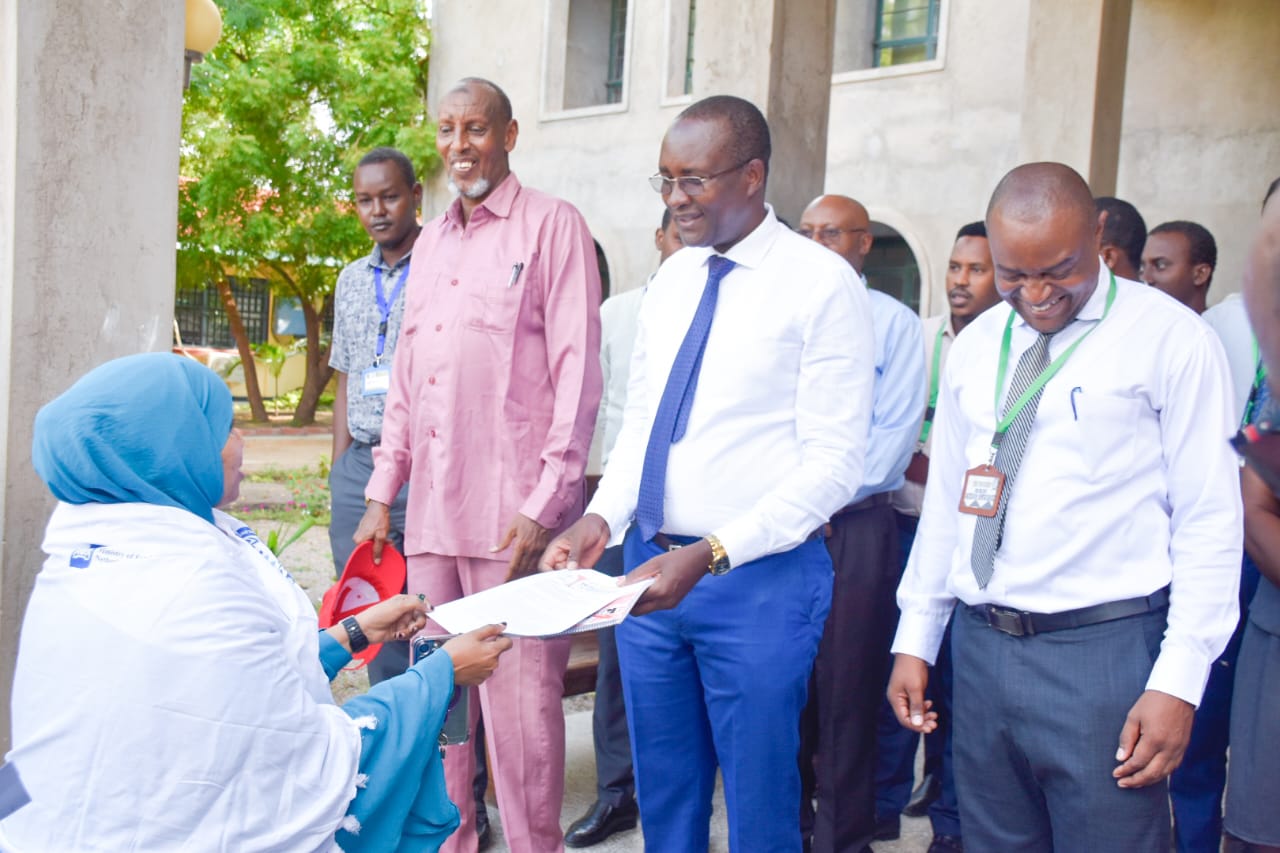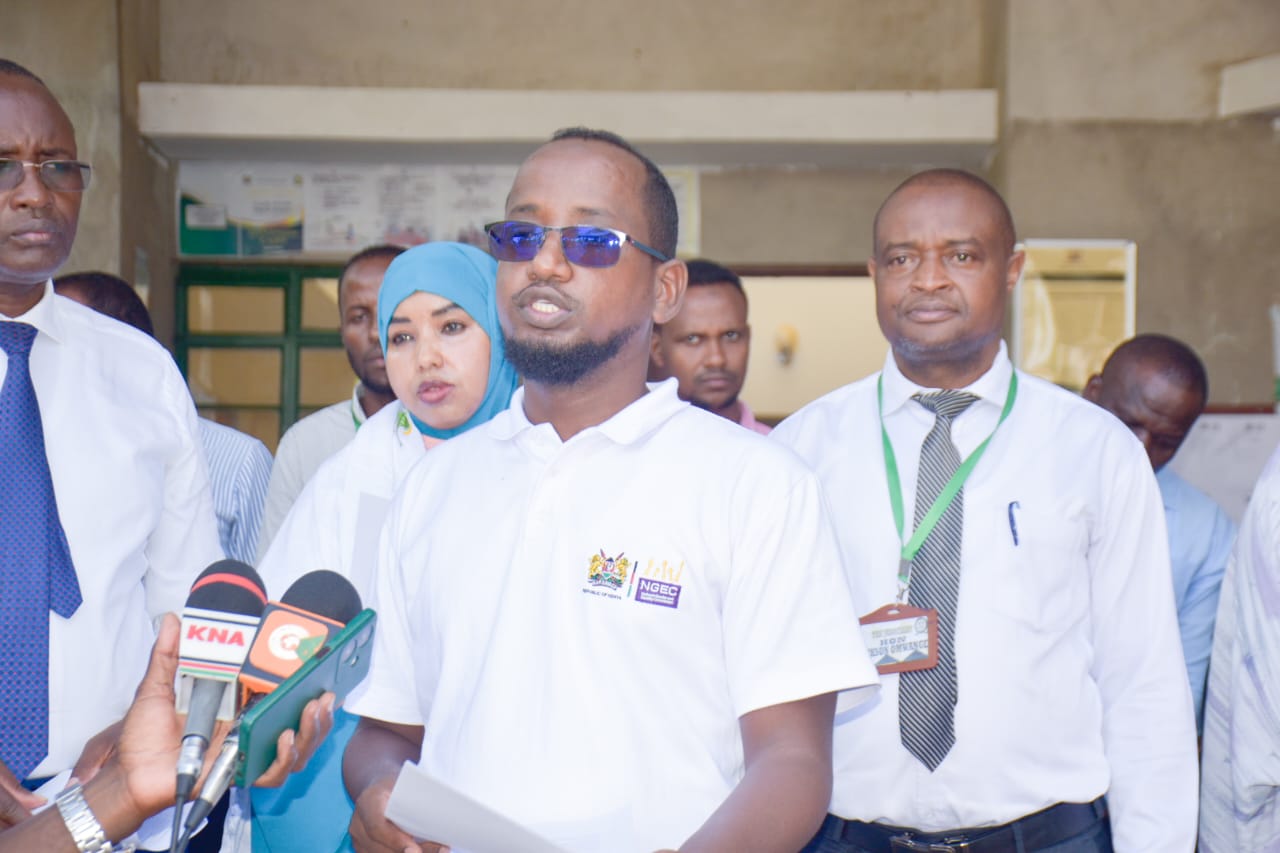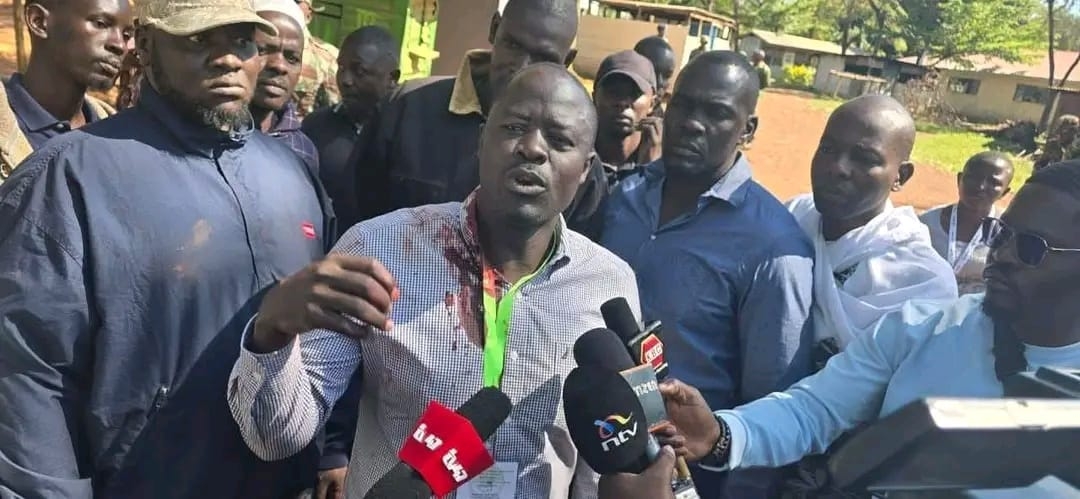 Garissa High Court Presiding Judge Justice John Onyiego
receives the memorandum from Garissa gender executive Hawa Abdi Sahal./STEPHEN ASTARIKO
Garissa High Court Presiding Judge Justice John Onyiego
receives the memorandum from Garissa gender executive Hawa Abdi Sahal./STEPHEN ASTARIKO Abdiwahab Ibrahim from the National Gender and Equality Commission./STEPHEN ASTARIKO
Abdiwahab Ibrahim from the National Gender and Equality Commission./STEPHEN ASTARIKO Human rights defenders from Garissa holding a procession in the
town./STEPHEN ASTARIKO
Human rights defenders from Garissa holding a procession in the
town./STEPHEN ASTARIKOGarissa High Court Presiding Judge Justice John Onyiego has raised alarm over the rising cases of sexual and gender-based violence (SGBV) in the North Eastern region, warning that the continued use of maslah—a traditional dispute-resolution system—is undermining justice for survivors and shielding perpetrators from accountability.
Speaking on Tuesday outside the Garissa Law Courts, Justice Onyiego said the informal system has increasingly become a major obstacle in prosecuting sexual offences.
He addressed the media after receiving a memorandum from the Garissa Protection and Gender Technical Working Group during the launch of the 2025 16 Days of Activism Against Gender-Based Violence.
“Sexually related offences remain quite rampant in this region. This is despite the most punitive sentences prescribed under the Act, and which this court has enforced strictly,” he said.
“However, the use of maslah has been the biggest challenge. It has resulted in the withdrawal of cases that have been filed. We completely don’t allow reconciliation on that ground.”
The judge urged the police, Department of Children Services and the Office of the Director of Public Prosecutions (ODPP) to strictly follow the law, emphasising the need for timely investigations and prompt charging of suspects to prevent delays in the judicial process.
He also appealed to elders who preside over maslah sittings to desist from mediating sexual offence cases, warning that those who encourage reconciliation in such matters risk facing legal consequences.
“So we want to urge the elders who sit in the maslah sittings to avoid encouraging reconciliation on matters related to GBV. They should not touch those cases at all,” he said.
Justice Onyiego revealed that the Court Users Committee (CUC) will roll out a series of countywide outreach programmes from February next year to educate the public on the dangers of informal settlements in SGBV cases and to strengthen trust in the formal justice system.
He also called on the ODPP and the Witness Protection Agency to ensure that complainants are shielded from interference, urging the establishment of rescue centres to protect survivors—especially minors—during investigations and trial.













